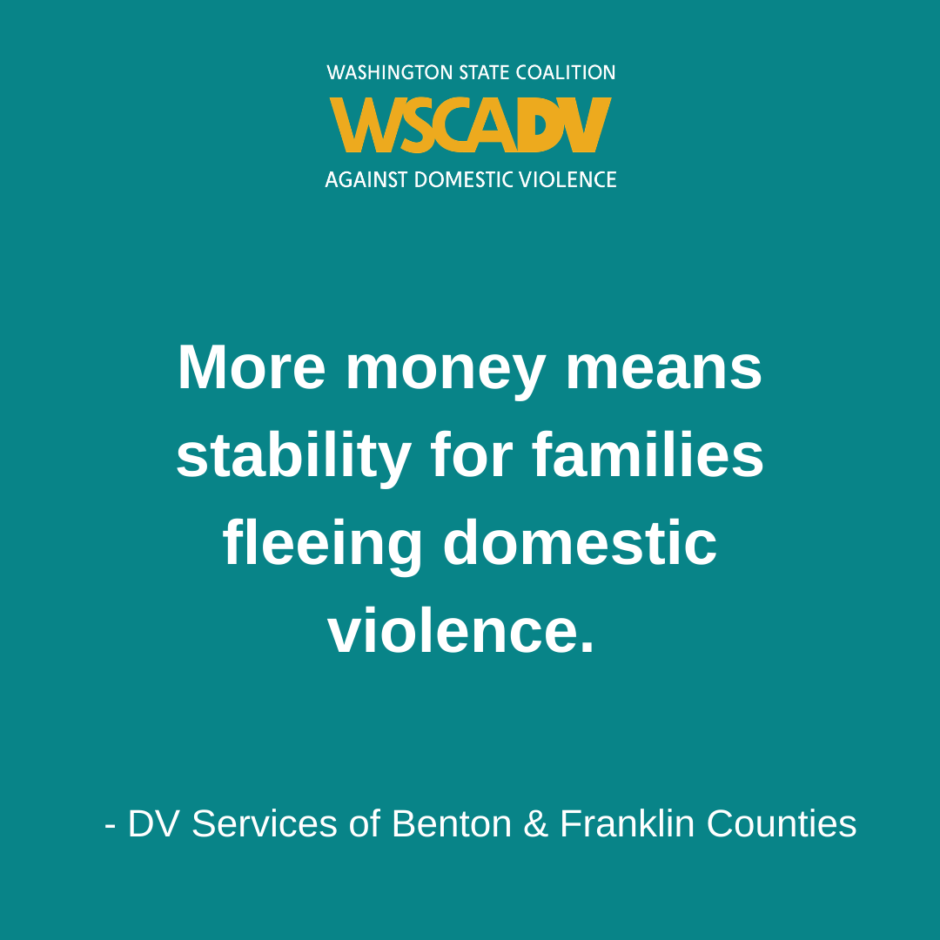The Washington State Legislature is currently working on the budget for all state spending over the next two years.
Capital Budget
This guide provides a great overview of the Capital Budget. WSCADV is advocating for increasing revenue to help fund programs that support survivors and their families.
We are joining our friends at the Washington Low Income Housing Alliance (WLIHA) in prioritizing the following Capital Budget requests:
- $240 million for the Housing Trust Fund to build new affordable homes
- $10 million to purchase and preserve affordable housing at risk of loss
- $70 million for rapid acquisition of property for shelter, transitional, and permanent supportive housing
- $40 million for enhanced shelter capacity grants

Survivors and their families need affordable housing and shelter! You can help by asking your lawmakers to prioritize these Capital Budget investments. Here’s how to take action today.
The Housing Trust Fund is especially important to our member programs. Agencies can apply for Housing Trust Fund money to be spent as a cornerstone in purchasing, renovation, or building. The need is not being met, however, as we continue to hear that communities across the state are experiencing housing shortages. Increased funding could also expand our membership’s ability to incorporate a Domestic Violence Housing First (DVHF) housing philosophy. When organizations have their own housing facilities or strong partnerships with community affordable housing providers, they can directly provide more choices to survivors.
Operating Budget
This guide provides a great overview of the Operating Budget. WSCADV is asking state lawmakers to invest in a 15% increase in Washington’s Temporary Assistance for Needy Families (TANF)/WorkFirst cash grant.
Survivors often access TANF when they are trying to escape abusive relationships and/or as they begin to rebuild financial stability after an abusive partner has sabotaged their finances. Without meaningful investments made to the TANF program, Washington families will keep struggling to get by with the current cash grant, which is worth less than it was before the Great Recession in 2008. Currently, TANF provides a cash grant of a maximum $569/month for a family of three. TANF benefits leave families at just 31% of the federal poverty level and without adequate resources to pay rent, keep the lights on, or afford diapers and other essentials.